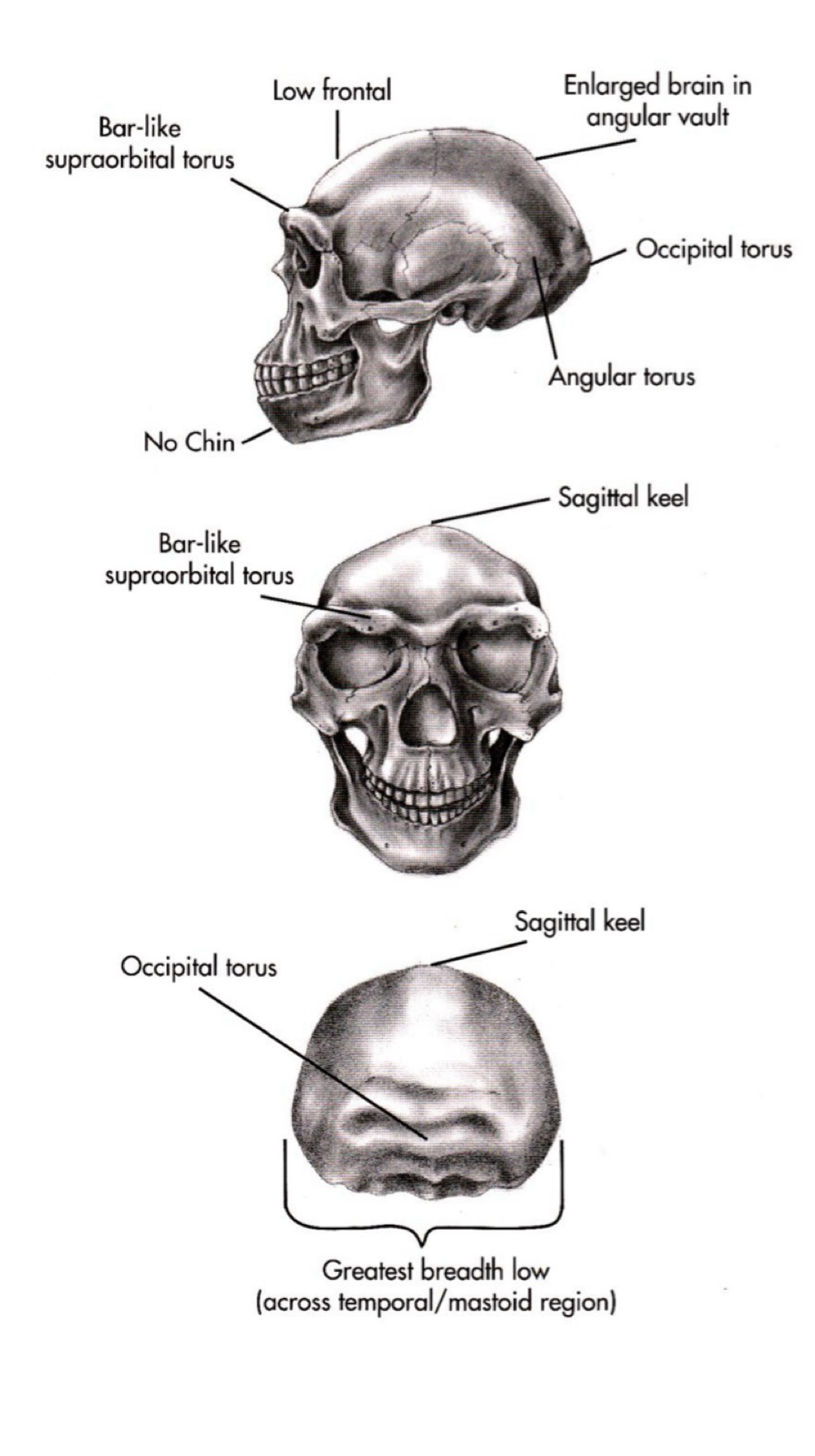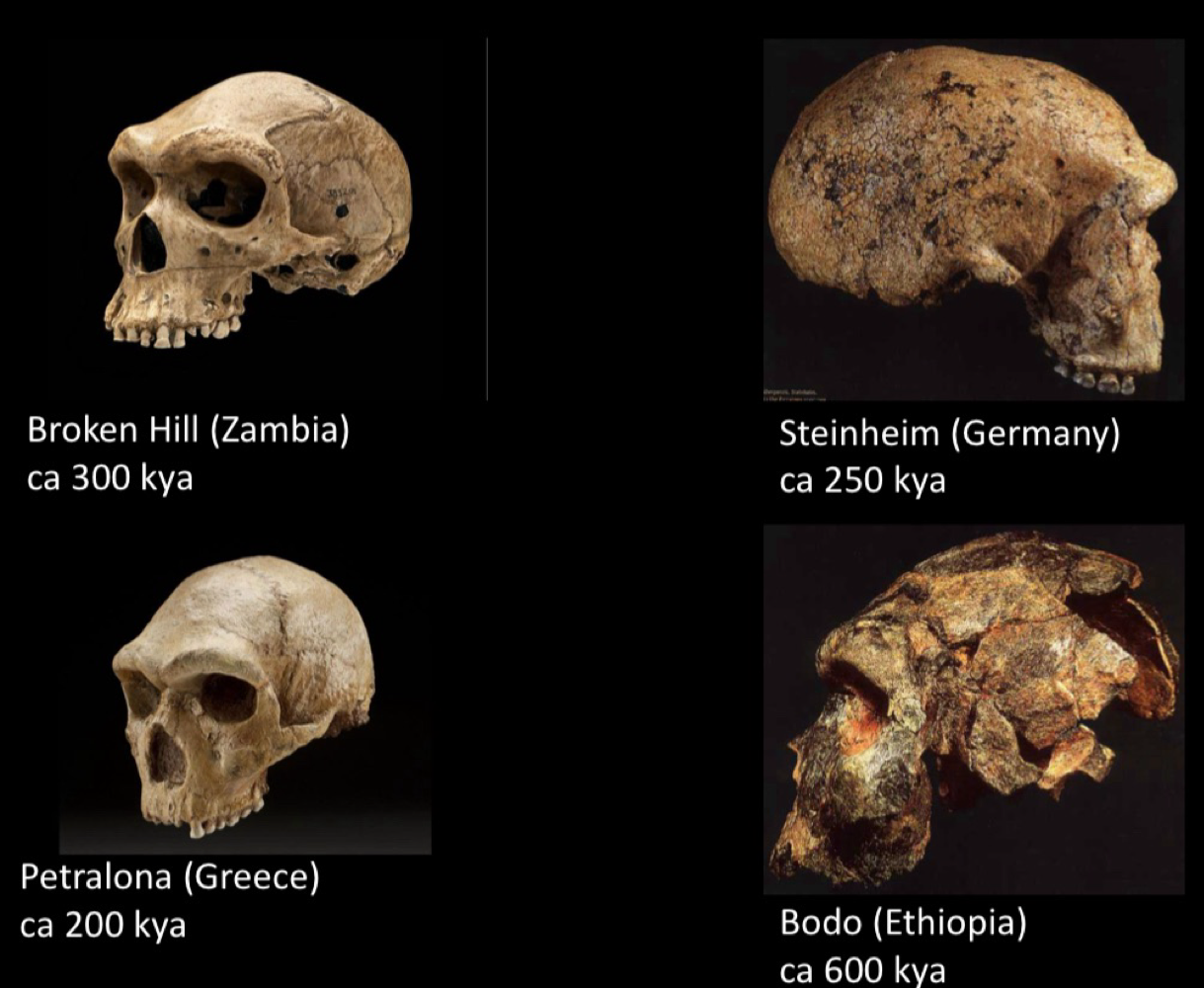Human Biology: Human Evolution
1/12
There's no tags or description
Looks like no tags are added yet.
Name | Mastery | Learn | Test | Matching | Spaced | Call with Kai |
|---|
No analytics yet
Send a link to your students to track their progress
13 Terms
Ardipithecus group: Sahelanthropus Tchadensis
(7-6 mya)
Thicker enamel
Reduced prognathism
Massive brow ridge
Foramamen magnum under skull
Brain 320-380cc
chad
Ardipithecus group: Orrorin tugenensis
(- 6mya)
Kenya
Between chimp and human
Chimp-like front teeth
Slight diastema
Human like molars
Ardipithecus group: Ardipithecus ramidur
Ethiopia
Rigid-like foot
Grasping toe
Ooodland dwelling
Limb proportion similar to quadrupedal Miocene apes
Australopithecus Group
erect and bipedal
Relatively long forelimb (ape-like)
Sexually dimorphic
Small brains
Intermediateteeth
- slight diastea
Reduced canine dimorphism
Large molars
Thicker enamel than ape
Cranial capacity: 400-450cc
Locomotory transition: Arboreal suspnsory to bipedal (3.8 mya)
Australopithecus: warming, drying climate → forest to Savannah woodland.
1. Postural adaption for feeding
2. Thermoregatory (reduce surface area for insulation)
3. Energetic of movement over open ground.
Carrying objects
Wading hypothesis
Australopithecus afernsis (4.2-2.9 mya)
Lucy - Adult female
Sex dimorphism
Skull/dentition
Small brain case
Prognathism
Reduced canine
Little bit of a diastema
Early bipedal, but arms are somewhat longer relative to legs than in humans → slept and foraged in trees
Australopithecus africanus
South Africa
Southern ape of African
Small brain case
Reduced canines
Earliest Homo: H.habilis and H.rudolfensis
East Africa
Bipedal
Forelimbs proportions similar to A.afarensis. (Arms somewhat longer relative to legs than in humans
Reduced facial size and small teeth; monomorphic canines: smaller molars; thinner enamel
Slightly enlarged brain
Cranial capacity: 700c
Tools: Oldowan stone
Chimp (Pan)
Quadrupedal
1st molar eruption (yrs): 3-3.5
Dimorphism canines’ thin enamel Slightly enlarged
Cranial capacity: 400cc
Tools: few
Homo ergaster And H. erectus
- H.ergaster in Africa: form 2.0 - 0.6 mya
Mostly acheulian tools
Controlled fire
Hunting of large mammals
Some diver from Africa to early Eurasia + Asia
Cranial capacity: 840 (some say 1000)
H. Erects in Asia approx 1.8-0.1 mya
Less complex tools than H. Ergaster
Controlled fire
Dead end group but persists longer than H. Ergaster
Cranial capacity: 840 ( some say 1000 cc)
Body mass: 60kg

H. Heidelbergensis
800-200 kya
Bipedal
Unknown fist molar eruption
Body mass: 80(?) large
Cranial capacity: 1200cc to 1300cc
Tools: Acheulian: hunt big game.

H. Sapiens
bipedal
First molar eruption: 6 years
Body mass: 60kg
Cranial capacity: 1250-1400cc
Tools: paleolithic complexes
H. Neanderthalensis
400000- 40000 ya
Cranial capacity: 1500cc